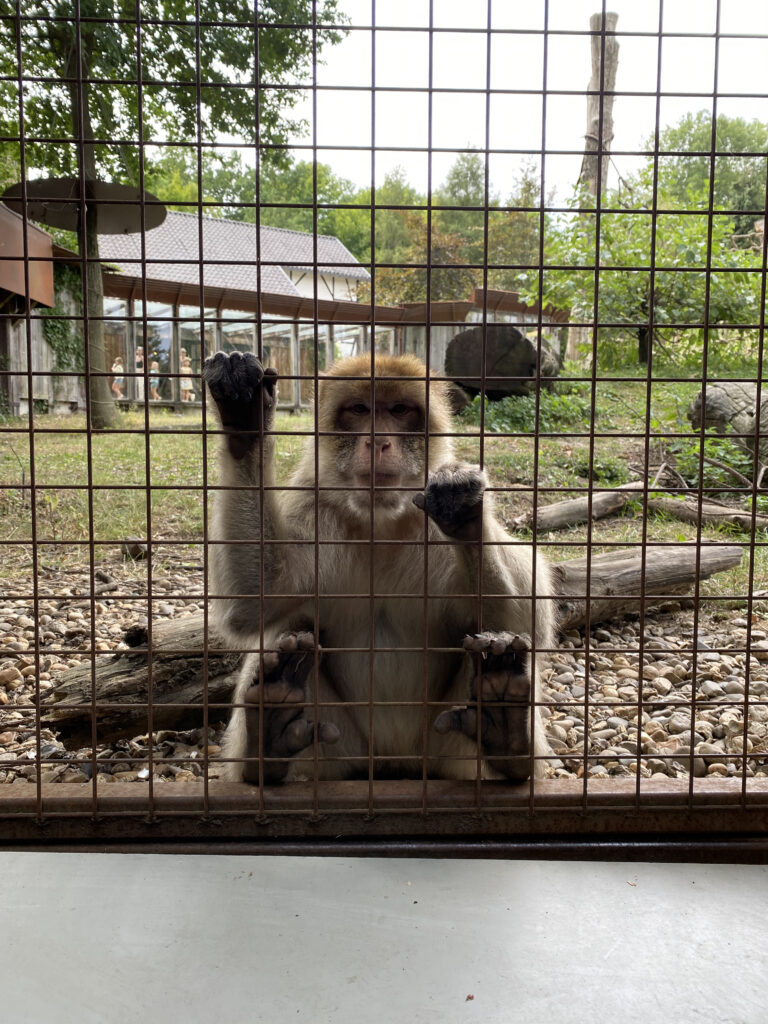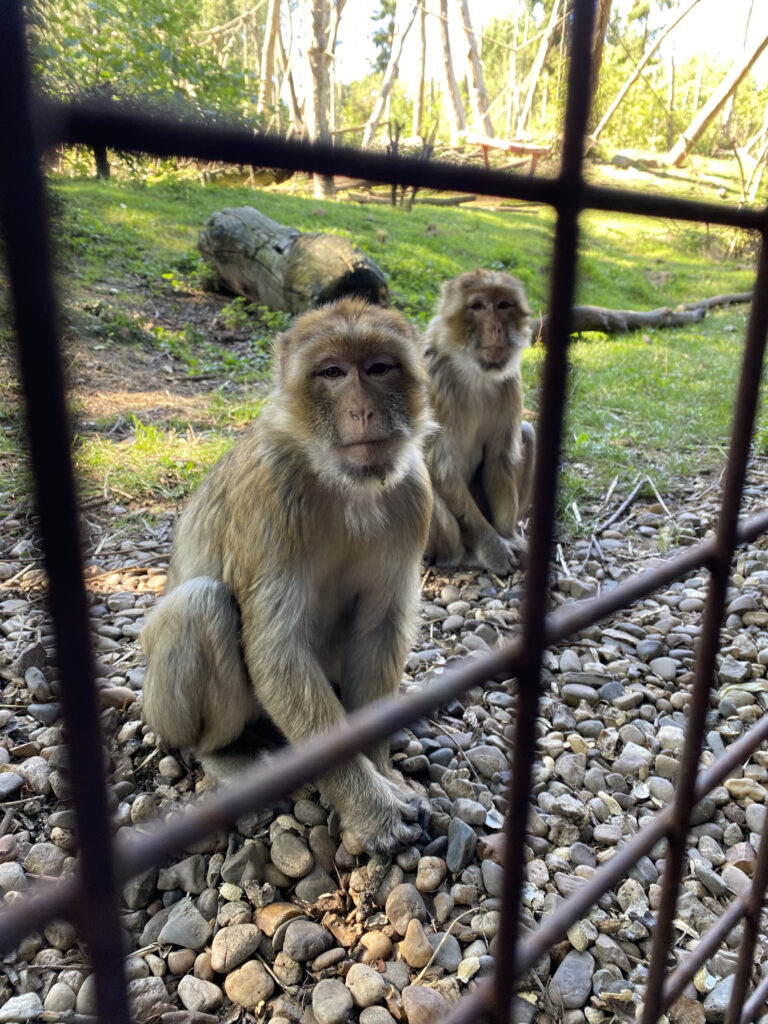
In the present study, I investigated intraspecific variation of cooperative behaviour in a group of 14 zoo-housed Barbary macaques (Macaca sylvanus). I assessed the presence of prosocial tendencies in the group because this trait is thought to be a predictor of cooperation. To this end, I used the loose-string and group service paradigms, which have previously been validated in other species.

Furthermore, I investigated individual (i.e., personality) and social (i.e., rank distance) factors, as those are hypothesized to be predictors of cooperative success. I evaluated the personality traits of the group by performing behavioural observations and novelty tests, the latter included the provision of novel objects, novel food, and food puzzles, as well as the presentation of predator models. Those resulted in the personality traits of Activity, Sociability, and Exploration. Activity significantly decreased with age, while Exploration significantly predicted cooperative success. Moreover, individuals that are distant in the dominance hierarchy tended to cooperate more between each other. However, the occurrence of cooperation was very low.
Overall, I found that the tested Barbary macaques lacked cooperative and prosocial tendencies at the group-level, possibly due to low levels of inter-individual tolerance and spatial-temporal coordination, together with a steep dominance hierarchy and food monopolization from high-ranking individuals.